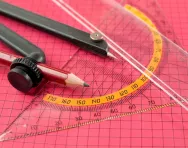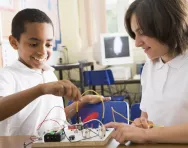Important update from TheSchoolRun
For the past 13 years, TheSchoolRun has been run by a small team of mums working from home, dedicated to providing quality educational resources to primary school parents. Unfortunately, rising supplier costs and falling revenue have made it impossible for us to continue operating, and we’ve had to make the difficult decision to close. The good news: We’ve arranged for another educational provider to take over many of our resources. These will be hosted on a new portal, where the content will be updated and expanded to support your child’s learning.
What this means for subscribers:
- Your subscription is still active, and for now, you can keep using the website as normal — just log in with your usual details to access all our articles and resources*.
- In a few months, all resources will move to the new portal. You’ll continue to have access there until your subscription ends. We’ll send you full details nearer the time.
- As a thank you for your support, we’ll also be sending you 16 primary school eBooks (worth £108.84) to download and keep.
A few changes to be aware of:
- The Learning Journey weekly email has ended, but your child’s plan will still be updated on your dashboard each Monday. Just log in to see the recommended worksheets.
- The 11+ weekly emails have now ended. We sent you all the remaining emails in the series at the end of March — please check your inbox (and spam folder) if you haven’t seen them. You can also follow the full programme here: 11+ Learning Journey.
If you have any questions, please contact us at enquiries@theschoolrun.com. Thank you for being part of our journey it’s been a privilege to support your family’s learning.
*If you need to reset your password, it will still work as usual. Please check your spam folder if the reset email doesn’t appear in your inbox.
How to survive starting secondary school

- Lots of schools organise induction days or social events before term starts. Go along, get to know a few people and check out who is in your class. They may not turn out to be your new BFFs, but knowing a face in the crowd is a good feeling. And people will want to be friendly – you’re all new together.
- Buy an alarm clock. Most secondary schools start at 8.30am so if you have a long journey, you may have an early start.


Download Year 6 to 7 transition packs
- English & Maths transition packs
- Practise journalistic writing, figurative language, persuasive text and more
- Revise key maths methods and concepts
- Always eat some breakfast, even if you feel nervous. It’s a long time until lunch.
- Put in plenty of practice at tying your tie. You’ll need to be able to do it at speed and under pressure (ie, after PE) and in a range of styles (long and thin, short and wide...). Then practise putting it on and taking it off without undoing it.
- If you’re wearing a blazer for the first time, don’t let your mum buy it too big. You will need to use your hands.
- If you’re worried about the uniform (skirt v trousers?), take a trip to the school before the summer holidays and check out what everyone else is wearing.
- If you’ll need to use an Oyster card or travel pass, make sure you apply for it in plenty of time – it may take a couple of weeks to come through, so don’t leave it until the end of the holidays. And make sure there’s money on it if you need it.
- Get some passport photos taken – they’re useful for a travel pass or library card.
- Work out your route to school, whether you’re walking or taking public transport. Practise until you’re confident and time yourself. Also, make sure you have an alternative route in case of problems with transport or people you want to avoid. If it helps, draw a map.
- Buy a very big, very strong bag. You will have loads to carry. And that’s not counting the days when you’ll have your PE kit. Girls, don’t be tempted to buy a handbag – they’re fashionable but they really won’t last.
- Does your new school have lockers or will you be carrying your coat around with you all day? If you do, you may need a lightweight one you can stuff into your bag.
- If you can, find a friend to walk with on your first day. Things won’t seem so daunting if you can go with someone.
- Be prepared to just ‘hang out’ at playtime.
- Don’t call it ‘playtime’ – it’s ‘break’ now.
- Work out how you’ll be paying for your lunch – if it’s a card or fingerprint system, make sure you’re topped up for your first day.
- You may find yourself eating your lunch at 11am if the canteen opens early. There may not be enough time at lunchtime, or the queues may be too long. And unfortunately, there may be pushing in from the older ones.
- Try not to eat pizza every day.
- Find out where the toilets are.
- Find out your new school’s policy on mobile phones, preferably before yours goes off in the middle of geography.
- When it’s PE, time is always precious, so for boys, go for adjustable waist trousers – there’s no time to be fiddling with a belt. If PE is first period, you may be able to wear your shorts under your trousers for a quick change.
- Stock up on sticky-backed plastic – you’ll have plenty of exercise books which will need covering.
- When you are given your timetable, make at least three copies: one for your bag, one for your pocket and a spare for home.
- Get your new friends’ phone numbers – you may need to give them a call if you have a last-minute homework panic.
- Find out all you can about your new friends. Your mum is bound to ask.
- Be organised. If you’re given a student diary or planner, use it to write down your homework – when there is so much going on, it’s easy to forget.
- Go through your timetable and pack your bag the night before – there’s never time in the morning to find your maths book.
- Join the library. It’s a great place to go if you want to do some homework or just avoid the playground.
- Never be afraid to ask for help if you’re not sure where to go.
- At lesson changeover, stick with someone who knows where they’re going. And don’t try to go against the flow of traffic, you’ll only be trampled.
- Relax and try to enjoy it – in no time at all, it’ll seem like you’ve been there forever. And this time next year, you’ll be showing the new intake around the school.
BBC Bitesize has a range of starting secondary school resources offering support, tips and advice, from busting myths about secondary school teachers to dealing with embarrassing parents, coping with classwork and worries about losing old friends and making new ones.
You can also take an online quiz to find out if you're secondary school ready!









